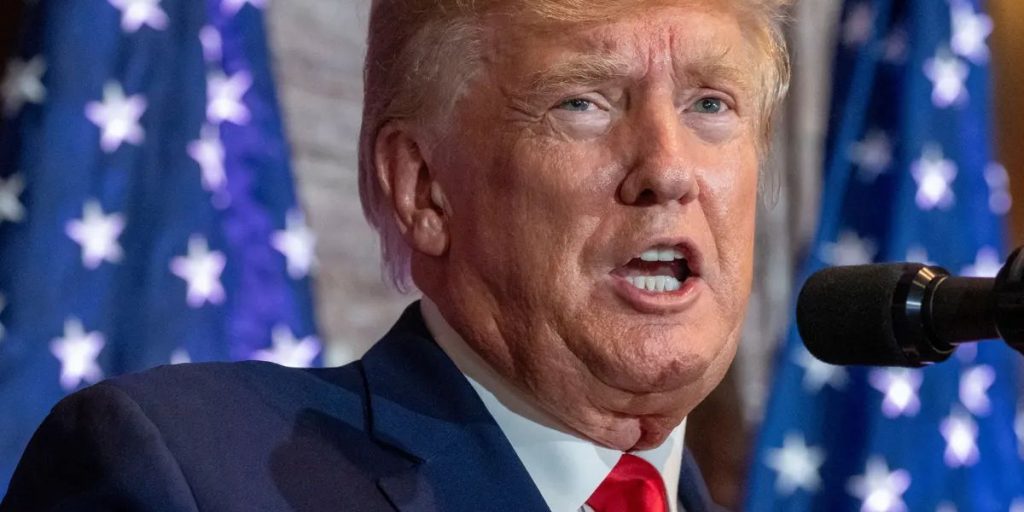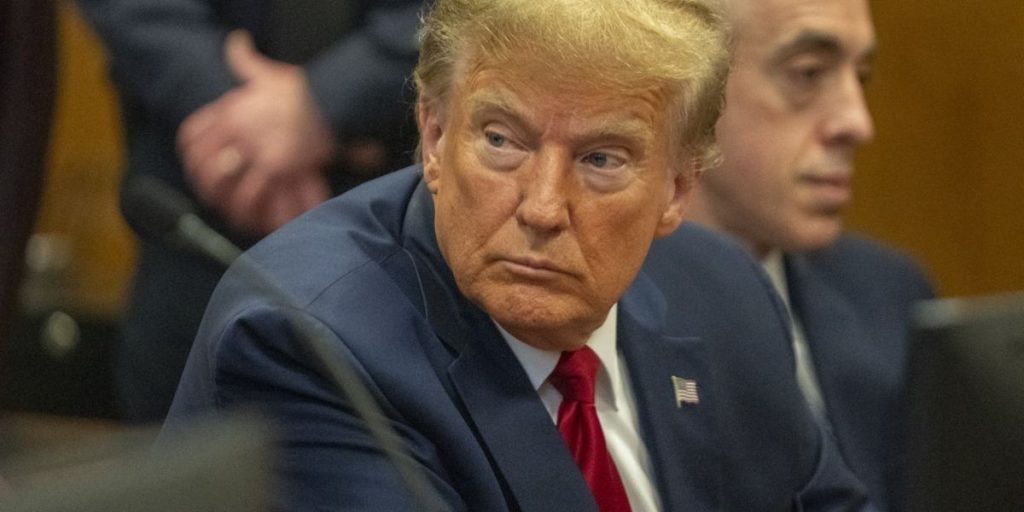Pundits and experts have spent much of the past year analyzing the political implications of Donald Trump’s conviction on any of the 88 felony charges he faces before the November election.
Jury selection for the first 34 of these counts begins on Monday in New York.
However, one extraordinary quirk buried in the mix is that even a single conviction in any of the cases against Trump could jeopardize his ability to vote in the general election.
The cases will have no bearing on Trump’s eligibility to compete for federal office, but they may have an impact on his ability to vote in the 2024 election.
Trump has voted in Florida since 2020, and the state, like nearly every other, bans voting rights for persons convicted of felonies. (Vermont and Maine, along with Washington, D.C., are the only states that never remove felons’ voting rights.)

However, even among states that disenfranchise criminals, the impact of a conviction on a person’s right to vote varies greatly.
Some states automatically restore a person’s voting rights after incarceration; others restore them after a full term, including parole and fines; while still others require a waiting time or some action on the part of those convicted to re-register.
In Florida, for example, most offenders regain their voting rights only after completing their sentences, which include paying any remaining fines. So, if Trump is convicted in Florida, as he could be in his classified materials case, he will be unable to vote until all portions of his sentence have been completed.
According to legal experts NPR spoke with, if all of the trials were taking place in the same state, Trump’s condition would be easier to understand.
But it’s more problematic since the first trial he’s facing — and the one most likely to be concluded before the 2024 election — is a hush-money case in New York, in which he’s accused of falsifying company paperwork during the 2016 race. He has pled not guilty to all charges.
According to Justin Levitt, an election law specialist at Loyola Marymount University and a former Justice Department official, the New York case might still have an impact on his voting rights in the Sunshine State because Florida largely follows other states’ disenfranchisement laws.
“Florida has interpreted its statute to say that a felony conviction in another state makes a person ineligible to vote in Florida,” Levitt said. “[But] only if the conviction would make the person ineligible to vote wherever they were convicted.”
People convicted of felonies in New York also have limited voting privileges while jailed. So Trump could lose his voting rights as a result of the New York case, but only if he is convicted and sentenced to prison.
“I’ll go out on a limb and say that’s not going to happen,” Levitt said.
The former president could theoretically spend more than 100 years in prison for the 34 accusations he faces in New York, but legal experts, including Levitt, believe this is extremely unlikely due to the nature of the charges.

“If it was already extremely unlikely that even if convicted he’d see prison time for this set of offenses [in New York], then I would say the former president’s status makes it extremely, extremely, extremely, extremely unlikely,” Levitt said. He said that the other trials Trump faces have a larger chance of harming his right to vote.
If Trump is convicted in the Georgia election interference case, he will lose his right to vote in Florida immediately because Georgia law states that a person simply needs to be convicted to lose voting rights (and those rights will not be restored until after punishment).
A conviction in Trump’s election meddling case in Washington, D.C., federal court appears to have little bearing on his voting rights, because the District of Columbia does not disenfranchise felons.
If nothing else, says Michael Morley, a law professor at Florida State University, wading through the complexities of Trump’s eligibility demonstrates how difficult it is for people with prior convictions, as well as those facing trial in a state other than the one in which they vote, to determine whether they can vote.
Local election officials are not advised of felony convictions in other states, and reports indicate that people who have previously been convicted may accidentally violate the law and vote because they believe they are eligible when they are not.
“That seems like something that can raise difficulties,” Morley said.